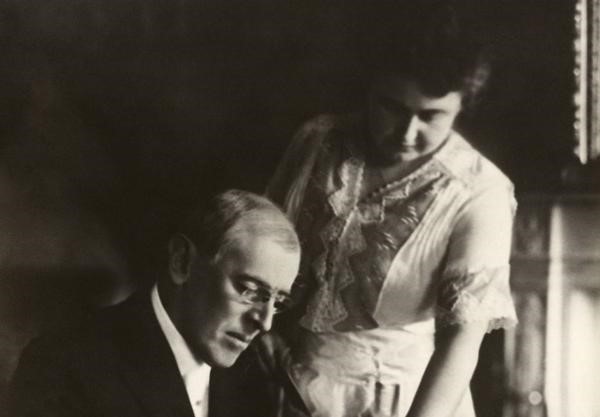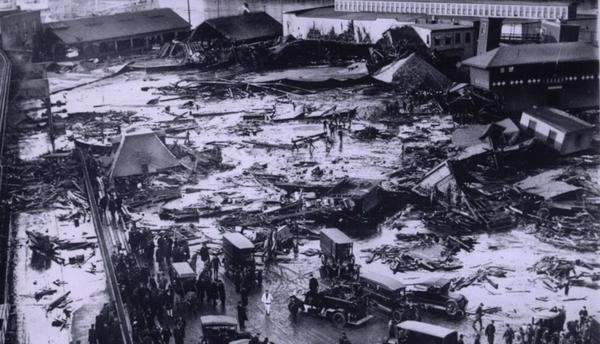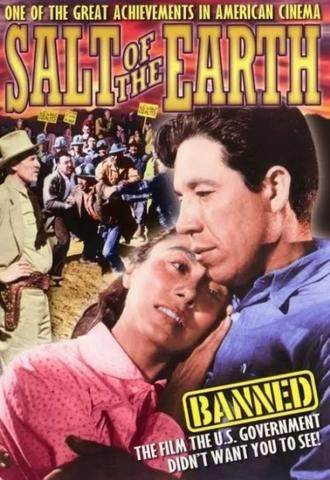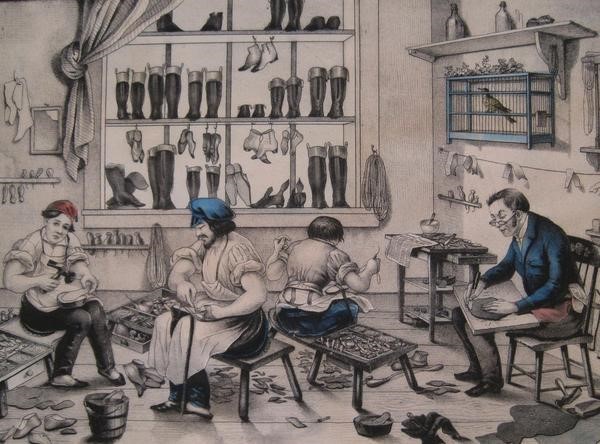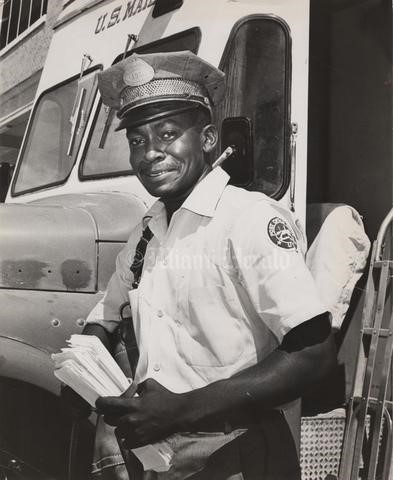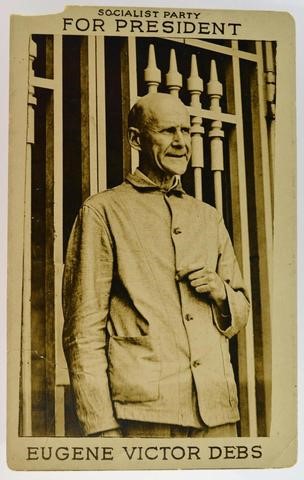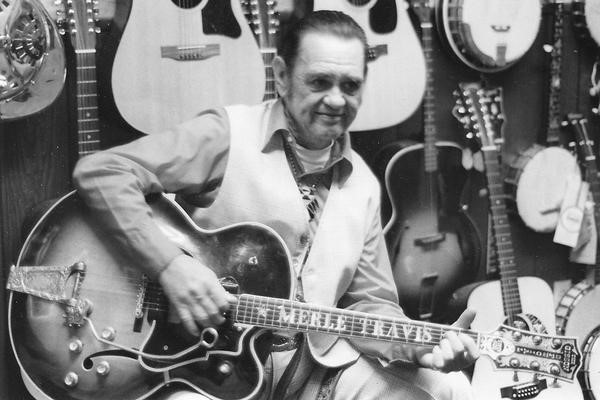October 15
President Woodrow Wilson signs the Clayton Antitrust Act—often referred to as “Labor’s Magna Carta”—establishing that unions are not “conspiracies” under the law. It for the first time freed unions to strike, picket and boycott employers. In the years that followed, however, numerous state measures and negative court interpretations weakened the law – 1914
October 16
Queen Marie Antoinette, wife of Louis XVI, is beheaded during the French Revolution. When alerted that the peasants were suffering due to widespread bread shortages, lore has it that she replied, “Let them eat cake.” In fact she never said that, but workers were, justifiably, ready to believe anything bad about their cold-hearted royalty – 1793
Abolitionist John Brown leads 18 men, including five free Blacks, in an attack on the Harper’s Ferry ammunition depot, the beginning of guerrilla warfare against slavery – 1859
October 17
A huge vat ruptures at a London brewery, setting off a domino effect of similar ruptures, and what was to become known as The London Beer Flood. Nearly 1.5 million liters of beer gushed into the streets drowning or otherwise causing the deaths of eight people, mostly poor people living in nearby basements – 1814
Founding of the American Federation of Government Employees, following a decision by the National Federation of Federal Employees (later to become part of the Int’l Association of Machinists) to leave the AFL – 1932
Labor activist Warren Billings is released from California’s Folsom Prison. Along with Thomas J. Mooney, Billings had been pardoned for a 1916 conviction stemming from a bomb explosion during a San Francisco Preparedness Day parade. He had always maintained his innocence – 1939
“Salt of the Earth” strike begins by the mostly Mexican-American members of Mine, Mill and Smelter Workers Union Local 890 in Bayard, N.M. Strikers’ wives walked picket lines for seven months when their husbands were enjoined during the 14-month strike against the New Jersey Zinc Co. A great movie, see it! – 1950
Twelve New York City firefighters die fighting a blaze in midtown Manhattan – 1966
Int’l Printing Pressmen’s & Assistants’ Union of North America merges with Int’l Stereotypers’, Electrotypers’ & Platemakers’ Union to become Printing & Graphic Communications Union – 1973
Industrial Union of Marine & Shipbuilding Workers of America merges with Int’l Association of Machinists & Aerospace Workers – 1988
October 18
The “Shoemakers of Boston”—the first labor organization in what would later become the United States—was authorized by the Massachusetts Bay Colony – 1648
New York City agrees to pay women school teachers a rate equal to that of men – 1911
IWW Colorado Mine strike; first time all coal fields are out – 1927
Some 58,000 Chrysler Corp. workers strike for wage increases – 1939
The United Packinghouse Workers of America (UPWA) was formed as a self-governing union, an outgrowth of the CIO’s Packinghouse Workers Organizing Committee. UPWA merged with the Meatcutters union in 1968, which merged with the Retail Clerks in 1979 to form the United Food and Commercial Workers (UFCW) – 1943
GM agrees to hire more women and minorities for five years as part of a settlement with the Equal Employment Opportunity Commission – 1983
October 19
The National Association of Letter Carriers achieves equalization of wages for all letter carriers, meaning city delivery carriers began receiving the same wages regardless of the size of the community in which they worked – 1949
The J.P. Stevens textile company is forced to sign its first union contract after a 17-year struggle in North Carolina and other southern states – 1980
October 20
Eugene V. Debs, U.S. labor leader and socialist, dies in Elmhurst, Ill. Among his radical ideas: an 8-hour workday, pensions, workman’s compensation, sick leave and social security. He ran for president from a jail cell in 1920 and got a million votes – 1926
Hollywood came under scrutiny as the House Un-American Activities Committee (HUAC) opened hearings into alleged Communist influence within the motion picture industry. Dozens of union members were among those blacklisted as a result of HUAC’s activities – 1947
Presidential candidate Ronald Reagan writes to PATCO President Robert Poli with this promise: if the union endorses Reagan, “I will take whatever steps are necessary to provide our air traffic controllers with the most modern equipment available and to adjust staff levels and work days so that they are commensurate with achieving a maximum degree of public safety.” He got the endorsement. Nine months after the election, he fires the air traffic controllers for engaging in an illegal walkout over staffing levels and working conditions – 1980
Death of Merle Travis, songwriter and performer who wrote “Sixteen Tons” and “Dark as a Dungeon” – 1983
Two track workers are killed in a (San Francisco) Bay Area Rapid Transit train accident. Federal investigators said the train was run by a BART employee who was being trained as an operator as members of the Amalgamated Transit Union were participating in what was to be a four-day strike – 2013
October 21
Wisconsin dairy farmers begin their third strike of the year in an attempt to raise the price of milk paid to producers during the Great Depression. Several creameries were bombed before the strike ended a month later. The economy eventually improved, allowing the farmers to make more money – 1933
The Upholsterers Int’l Union merges into the United Steelworkers – 1985
-Compiled and edited by David Prosten.

